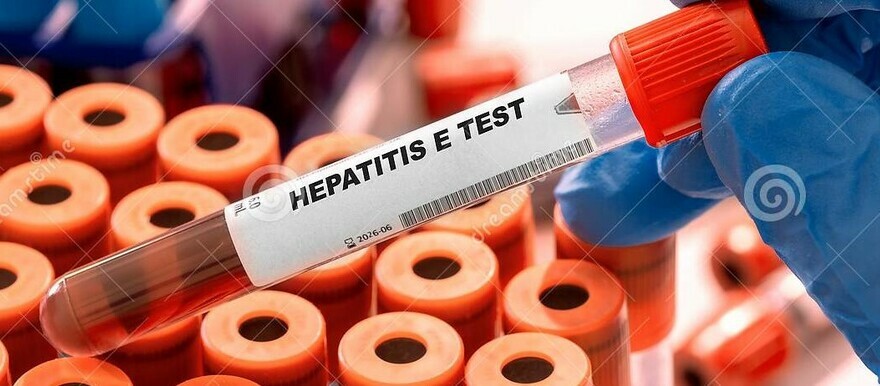Health authorities in South Sudan’s Warrap State have disclosed alarming news of a hepatitis E virus outbreak in Twic County. The revelation, made by national laboratory services, has prompted urgent attention from health officials.
Dr. Barach Malith, the Minister of Health and Environment for Warrap State, emphasized that hepatitis E is the most prevalent type of virus among the hepatitis variants (A, B, C, D). However, Dr. Malith clarified that in this case, the outbreak is attributed to water contamination. Consumption of contaminated water or direct contact with an infected person, particularly through the exchange of bodily fluids, is identified as the primary mode of transmission.
“On Wednesday, February 28, 2024, the Warrap State Ministry of Health officially declared the Hepatitis E outbreak, with Twic County, especially Wunrok Payam, experiencing the most severe impact. This declaration follows three weeks of comprehensive testing, where blood specimens were collected and sent to the national laboratory. Out of the two individuals tested, one was confirmed positive, substantiating the presence of the disease in the area,” explained Dr. Malith.
In accordance with health policy guidelines set by the ministry and the World Health Organization (WHO), the identification of a single case of a contagious disease has prompted the ministry to declare an outbreak. Currently, efforts are underway to compile a comprehensive listing, with surveillance activities activated at the county level to investigate existing cases. Notably, cases reported by MSF and Goal organizations will be forwarded to Juba for further testing.
Dr. Malith highlighted that the Warrap State Ministry of Health, in collaboration with partners, has swiftly devised plans to enhance the capacity of health personnel to respond effectively to the outbreak.
“With respect to the Hepatitis E response, the state ministry of health and the World Health Organization have scheduled a training session for health professionals to address the outbreak. Tomorrow, on Friday, a meeting will be held where plans will be shared, and partners will actively participate in discussions on training health staff and local restaurant workers in hygiene and sanitation practices. Given the virus’s prevalence in unsanitary environments and the consumption of undercooked foods, creating awareness among our people in the state is crucial,” he emphasized.
Dr. Malith further explained, “We aim to equip surveillance staff with the necessary training to identify more cases in the counties. Health professionals will receive training and be provided with the knowledge required to handle cases effectively, including recognizing signs and symptoms and utilizing appropriate devices for client care. We call upon our partners to collaborate with us in training efforts and the provision of infection prevention control (IPC) materials.”
Dr. Malith, the Health Minister, emphasized the urgent need for intervention focused on hygiene and sanitation awareness. He highlighted the importance of the Water, Sanitation, and Hygiene (WASH) program, stressing that the virus thrives in conditions of poor hygiene, including contaminated water.
“The transmission of the virus from infected to non-infected individuals occurs through various means, including contaminated water, air, and oral contact such as kissing,” Dr. Malith explained.
He further clarified that Hepatitis E is a self-limited virus, meaning it resolves on its own without specific treatment. While there is no direct treatment for Hepatitis in general, supportive care is available in health facilities throughout Warrap State.
Expressing concern, Dr. Malith noted the lack of diagnostic health devices within the state’s health system to test for the presence of the virus. Additionally, the absence of a laboratory at Kuajok hospital poses a significant challenge.
Dr. Malith also highlighted the shortage of trained staff to handle the new outbreak, compounded by the ongoing inter-communal conflict between Twic and Abyei communities. This conflict hinders efforts to raise awareness and promote hygiene practices, particularly in IDP camps where poor sanitation could accelerate the spread of the disease. Cultural barriers further complicate the situation.
Meanwhile, Amose Yak, the Health Director for Twic County, confirmed that two cases of Hepatitis E were diagnosed by MSF doctors, with another case confirmed by the national laboratory out of the five samples sent by the Warrap State Ministry of Health and Environment. Yak explained that according to surveillance policy, an outbreak is declared when 2-3 cases are identified, prompting the state ministry of health to announce the Hepatitis E outbreak.




